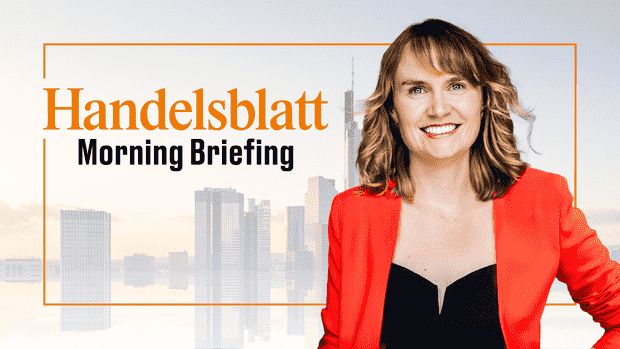Good morning dear readers,
the consulting firm McKinsey is used to analyzing other companies, criticizing them and, if necessary, ordering them to radically change course. Now the heavyweight in the consulting industry seems to show this unsparing honesty in itself as well. The devastating verdict on their own work is: “Our business model no longer suits the purposes of a modern company.”
The organization must be “agile, simple, secure and of high quality and offer less repetition”. This is what it says in an e-mail from the consulting firm to its alumni, which is available to the Handelsblatt. The business model has not been reviewed for a decade, writes McKinsey self-critically. A sentence that could also stand for a customer who is particularly resistant to advice in the final report. McKinsey is probably his own worst case at the moment.
The circular is a response to media reports from last week that reported plans to cut up to 2,000 jobs. The clear cut is not explicitly mentioned in the mail. At the same time, however, the consulting company subtly asks its alumni to graciously take in employees who “will get lost in the process”.
The Leverkusen-based chemical and pharmaceutical group Bayer is also in a process of change. Werner Baumann, CEO since 2016, is retiring at the end of May and yesterday presented his last year’s balance sheet as CEO.
In retrospect, his own record as a man at the top of the DAX group is rather mixed. Mainly because his tenure is associated with a momentous move for the company: the takeover of seed specialist Monsanto. Monsanto’s core product, “Roundup” with the active ingredient glyphosate, is suspected of being carcinogenic. Bayer therefore inherited several legal disputes in the USA with the takeover.
“Baumann leaves behind a difficult and tragic legacy,” sums up Marc Tüngler, General Manager of the German Association for the Protection of Securities. It’s easy to explain why the shareholders see Baumann’s work critically. After all, the stock’s value has fallen 45 percent since 2015. By 2018 at the latest, many investors fled after Bayer lost the first major glyphosate trial in the United States.
Nevertheless, yesterday Baumann was proud that Bayer today holds leading world market positions in all areas. In order to classify this self-praise, the in-depth course on balance sheet analysis is recommended. Because what actually looks quite successful at first glance is clouded at second glance by “special factors”, which include above all the many legal costs in the glyphosate case. Baumann’s successor, the American Bill Anderson, will therefore be confronted with a number of challenges – and not only when analyzing his own balance sheet.
Chip subsidies against daycare places – that’s the curious deal between US President Joe Biden and semiconductor manufacturers in the USA. The first round of financing for a gigantic chip offensive by the Americans started yesterday. With the subsidies, Biden wants to secure the economic and technological leadership of the USA over China. Modern semiconductors are now indispensable for cars and electronics, but also in the defense industry.
The US Department of Commerce has now announced that companies that want to benefit from the total of 39 billion US dollars in government subsidies must meet certain conditions. Among other things, they should refrain from buying back shares, dissipate excess profits and improve childcare.
These are far-reaching demands made by the state on companies in a country that traditionally tends to oppose state intervention. The chip industry announced that it would “carefully examine” the specifications. We here in Germany should watch this experiment closely. After all, we could use both: semiconductors and daycare places.
If you are planning to install a new heating system, you should hurry – at least if it is an oil or gas heating system. Because Federal Minister of Economics Robert Habeck (Greens) and Federal Minister of Building Klara Geywitz (SPD) want to ban this from next year – this emerges from a draft of the ministries. “The installation of heating systems based exclusively on fossil fuels – especially gas and oil heating – will no longer be permitted from 2024,” says the draft.
(Photo: IMAGO/Metodi Popov)
Heating systems are considered an important lever for climate targets. After all, more than a third of the entire German energy requirement goes to heating buildings and supplying hot water. However, it is still questionable whether the plans of the Greens and SPD will be implemented, because the liberal coalition partner does not seem enthusiastic so far. If you are planning to install a heat pump and hire the necessary craftsmen in view of this news, we wish you the best of luck at this point.
From possible measures to fight the climate crisis in Germany, now a look at their current effects in our neighboring countries. While Lake Garda in Italy allows island visits on foot due to the persistent drought, France also set a sad drought record in February. Mainland France went 32 days without rain, the first time weather records began. In the meantime, the first drops are falling again, which are greeted there like the Savior himself.
President Emmanuel Macron made it clear that water would henceforth be a scarce resource: “This is the end of abundance,” he said. In some departments, washing cars, using lawn sprinklers and filling private pools are banned until the end of April.
I wish you a good day, on which you always have exactly as much water available as you need.
It greets you cordially
Her
Teresa Stiens
Editor of the Handelsblatt


